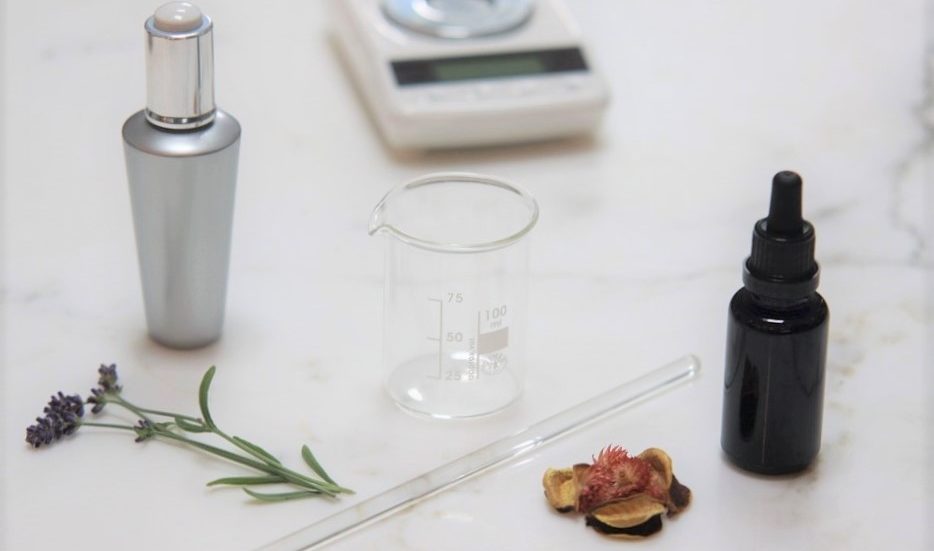
Since the end of the 19th century and the development of organic chemistry, perfumes can be composed of natural materials, but also synthetic molecules from petrochemicals. These molecules have been artificially manufactured with the aim of mimicking a natural smell or creating new smells. Their arrival allowed the rise of perfumery, but their use has become controversial because of their origin, and natural perfume is making a comeback.
So how do you choose your perfume? Should we be wary of synthetic perfumes? And what about natural perfumes?… Virevolte answers you.
To fully understand what makes a perfume, let's start with a bit of chemistry. A perfume is a subtle combination of different substances who will give a unique scent once mixed. The basic composition of a perfume is however quite simple: you have to raw material for the fragrant base and a support (most often alcohol). Unnatural marks will also add fixers, molecules that will improve the hold of the perfume over time and dyes to give the desired color.
To obtain the fragrant raw material, several options are possible. It is possible to choose natural raw materials (flowers, roots, wood, etc.) from which the scents will be extracted either by hydrodistillation (the traditional method of extracting essential oils using water vapour), or by other types of extraction such as supercritical CO2 (learn more about the different mining methods). The other option is to choose synthetic molecules.
Most of the perfumes that we know today are mainly composed of synthetic molecules, that is to say that the raw material comes from petroleum. After a certain number of chemical reactions, an odorous molecule is extracted from it. No difficulty therefore in finding the raw material since it is artificial and infinitely reproducible. In a synthetic perfume, the rose scent you can smell does not come from a rose but from a petroleum-derived molecule that was created in the lab to smell like a rose.
The advantage of synthetic molecules is the variety of scents : up to 4 aromas available, where the perfumer only has 000 to create a natural fragrance. Moreover, some odors are impossible to extract naturally; this is the case of dumb flowers like the lily, the lily of the valley or the lilac, very fragrant flowers but whose only way to extract their perfume is to reconstitute them in the lab. We then obtain a powerful fragrance, with a stable formulation and often accessible raw material… but often full of phthalates, dyes and other preservatives.
A natural fragrance is a strong bias. It is not made only from raw materials from nature: flowers, fruits, resins, spices, wood, roots... The perfumer's palette is therefore more limited, and obtaining the raw materials is dependent on the vagaries of the weather, which can affect the quality of the harvest, the yields, and therefore the cost. The scents are then extracted with different extraction methods depending on the material. Distillation, cold pressing (used for citrus fruits) and supercritical fluid extraction are the most used processes. The latter is interesting because it is not toxic to health or the environment and does not alter scents. Natural perfumes evolve over time but also in contact with your skin. There is a real chemistry between the smell of each skin and a perfume, in short, there is something alive in a natural perfume! In natural perfumes, we can feel more real, more authentic smells than our brain is able to understand. because it has already been faced with these smells in nature, which is not the case with a synthetic perfume, for which it is very difficult to decode the ingredients which can be pure inventions of man.
Today, it is difficult to give a definite answer to this question. Synthetic perfume offers the advantage of not using rare raw materials, such as oud wood. Ditto with animal materials, a natural resource that infringes protected species: no more hunting buckshot for musk or whales for amber.
However, warning to greenwashing and the often abusive “natural” labelling. A solvent-free extraction, a formulation based on vegetable alcohol, the mention “parfum of Grasse” or even “vegan formula” do not in any way guarantee the use of natural raw materials. Choosing a natural perfume is above all a question of meaning linked to your values. An intolerance to conventional perfume, the arrival of a child, the desire to consume better and respecting your health like the planet instinctively leads to natural perfume.
It is for this reason that at Virevolte, we have chosen to work only with ingredients from nature and cultivated by passionate farmers. who bring their know-how to life from generation to generation. We use organic wheat alcohol and we have chosen to ban synthetic molecules in our perfumes.
Discover our fragrances of natural origin Noir Délit, Orée Dorée, Rose Métamorphose et Vert Désert.